Experts Say These Healthy Foods Can Help Fight Inflammation In Your Body
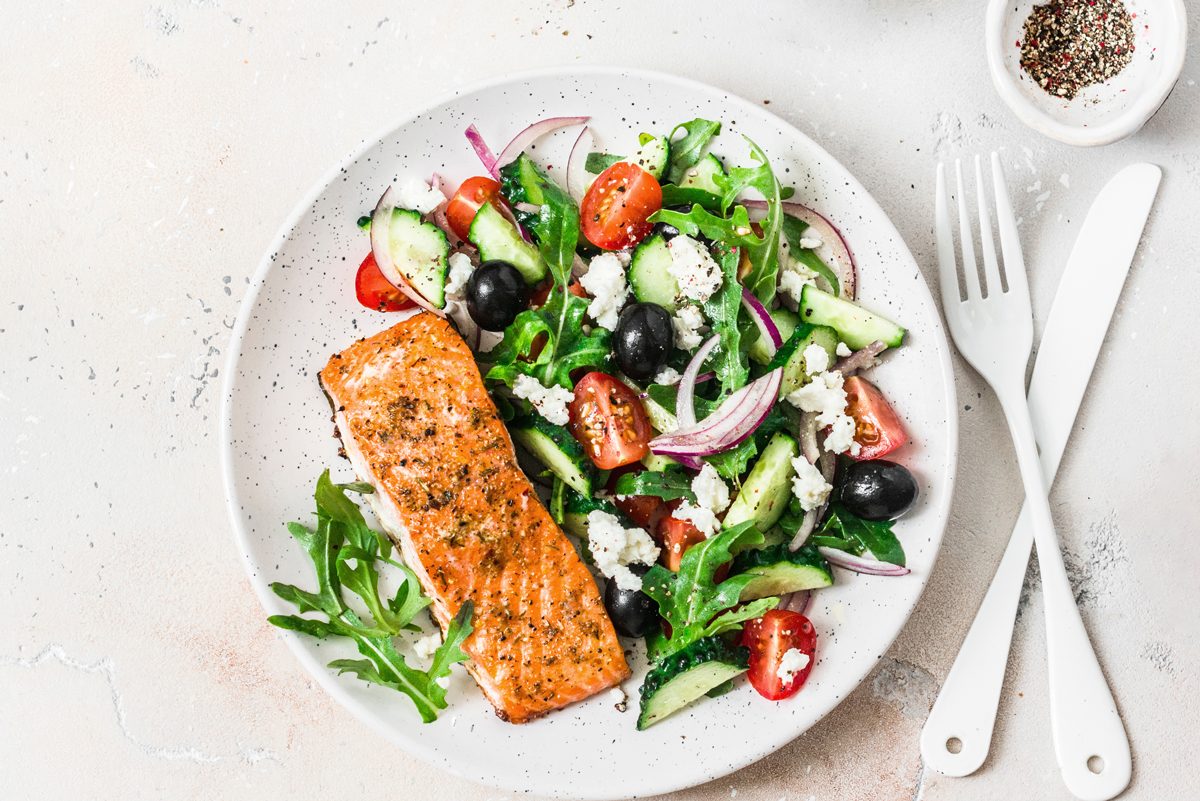
We all experience inflammation in our bodies sometimes, whether through feeling bloated, breakouts, or overall, feeling “meh.” Though occasional symptoms are to be expected, it can be dangerous when it’s chronic. In fact, inflammation comes from the Latin word meaning “to set on fire” and is probably the most potent contributor to head-to-toe aging, says Melina B. Jampolis, MD, an internist and board-certified physician nutrition specialist.
“Even if inflammation doesn’t cause particular cancer, it can make it worse. Many of the chronic diseases of inflammation can also eventually lead to cancer,” she says. “These include COPD, colitis, pancreatitis, inflammatory bowel disease, and prostatitis.”
One of the most beneficial ways to fight inflammation is through our diet. Many foods help heal our digestive systems and leave us feeling healthier. Here are a few recommended by experts, and for even more healthy tips, check out our list of The 7 Healthiest Foods to Eat Right Now.
Pineapple
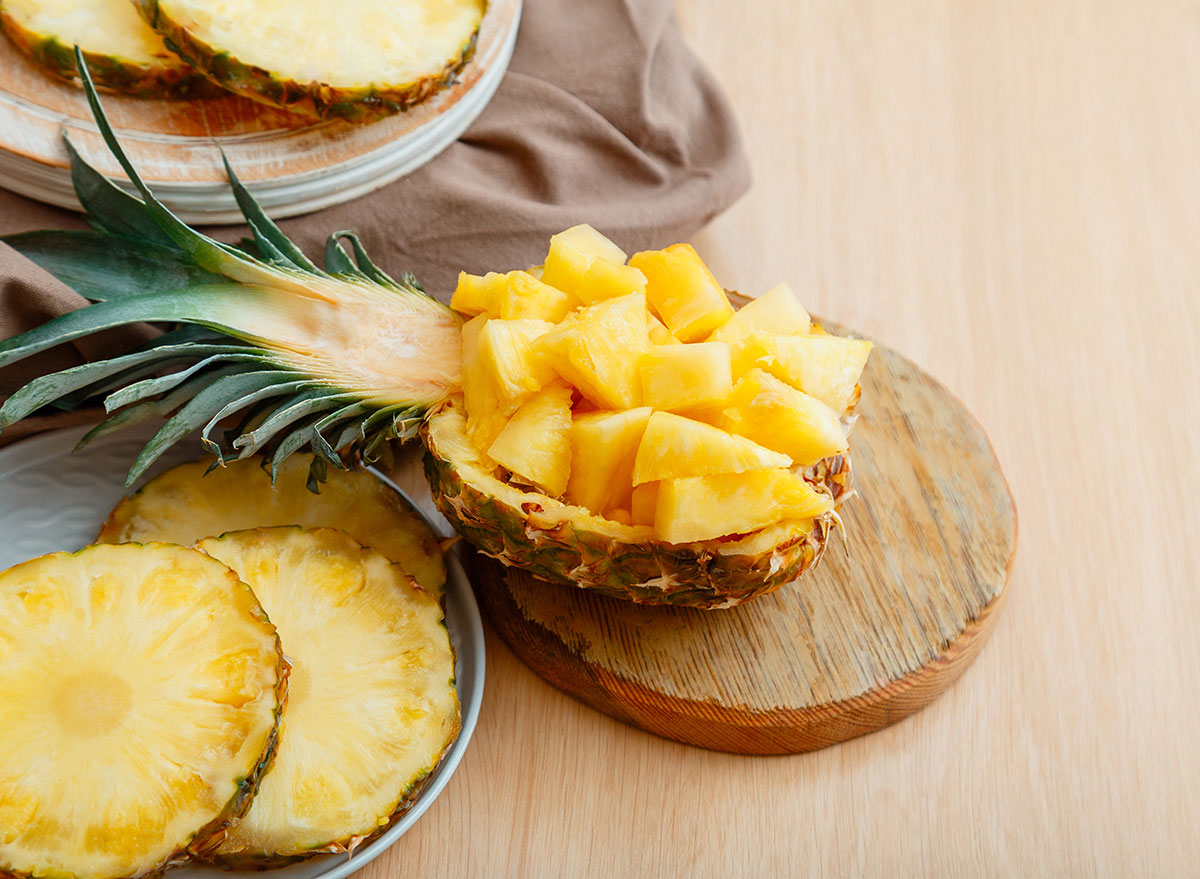
Whether you eat it fresh in the summer or canned in the winter, this delicious tropical fruit is high in bromelain, which has anti-inflammatory properties, as well as anti-cancer and antimicrobial effects, according to Erin Mewshaw, FNP-BC, the clinical director at New York Center for Innovative Medicine.
“Bromelain is also great for digestion, so if you are having any tummy troubles, pineapple juice will help to any relieve any gas, bloating, or constipation,” she says.
Remember to eat pineapple cold or room temperature since heat destroys bromelain, robbing its anti-inflammatory properties.
Berries
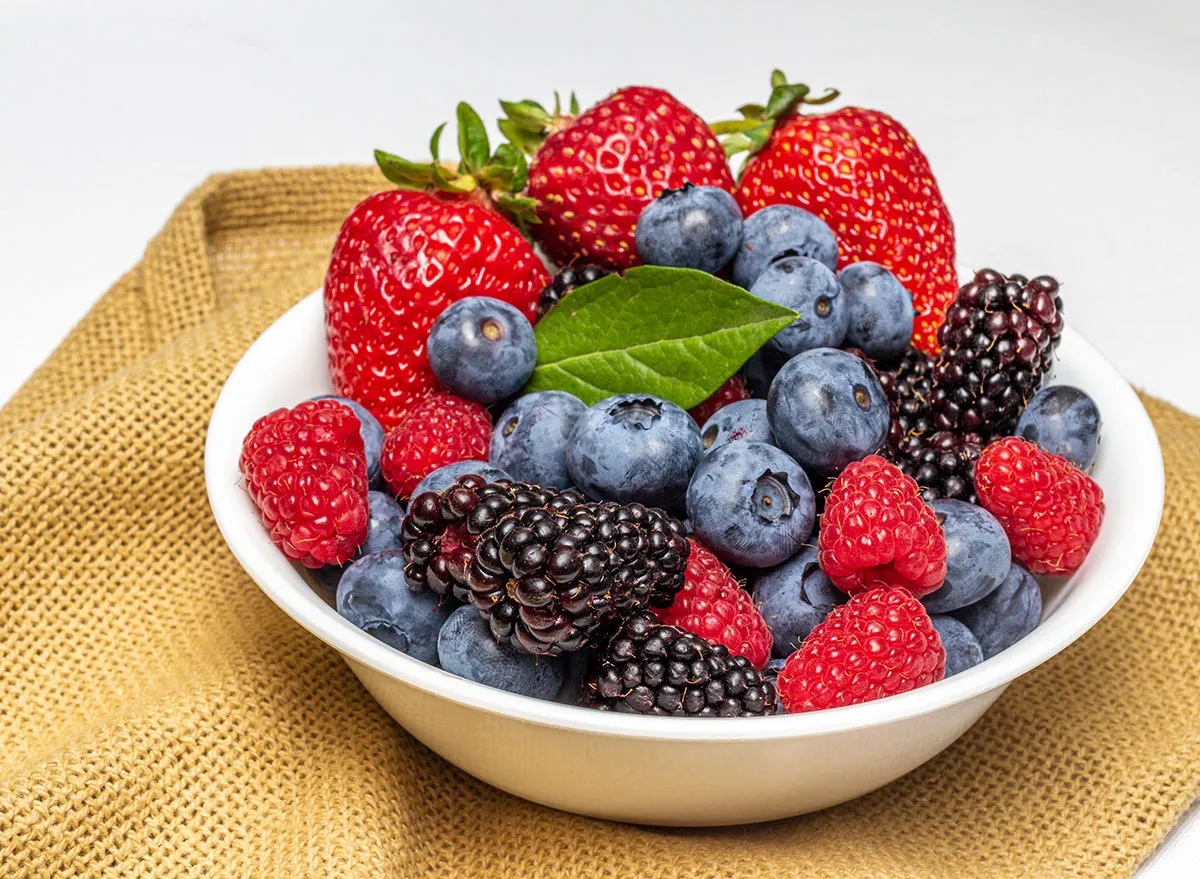
Good news if you can’t get enough of the berry family—from blueberries and strawberries to blackberries raspberries. They are full of antioxidants and anti-inflammatory compounds, including flavonoids like quercetin, anthocyanin, vitamin C, and more, according to Dr. Josh Axe, D.N.M., C.N.S, D.C., author and the founder of Ancient Nutrition.
“These phytonutrients fight inflammation, oxidative stress, and even potentially lower the risk for developing conditions like cancer, memory loss, and heart disease,” he says. “Berries also help support gut health and a healthy balance of gut flora, meaning they can protect from colon damage and limit symptoms tied to inflammatory diseases stemming from poor gut function.”
Here’s One Major Side Effect of Eating Berries, Says Science.
Turmeric
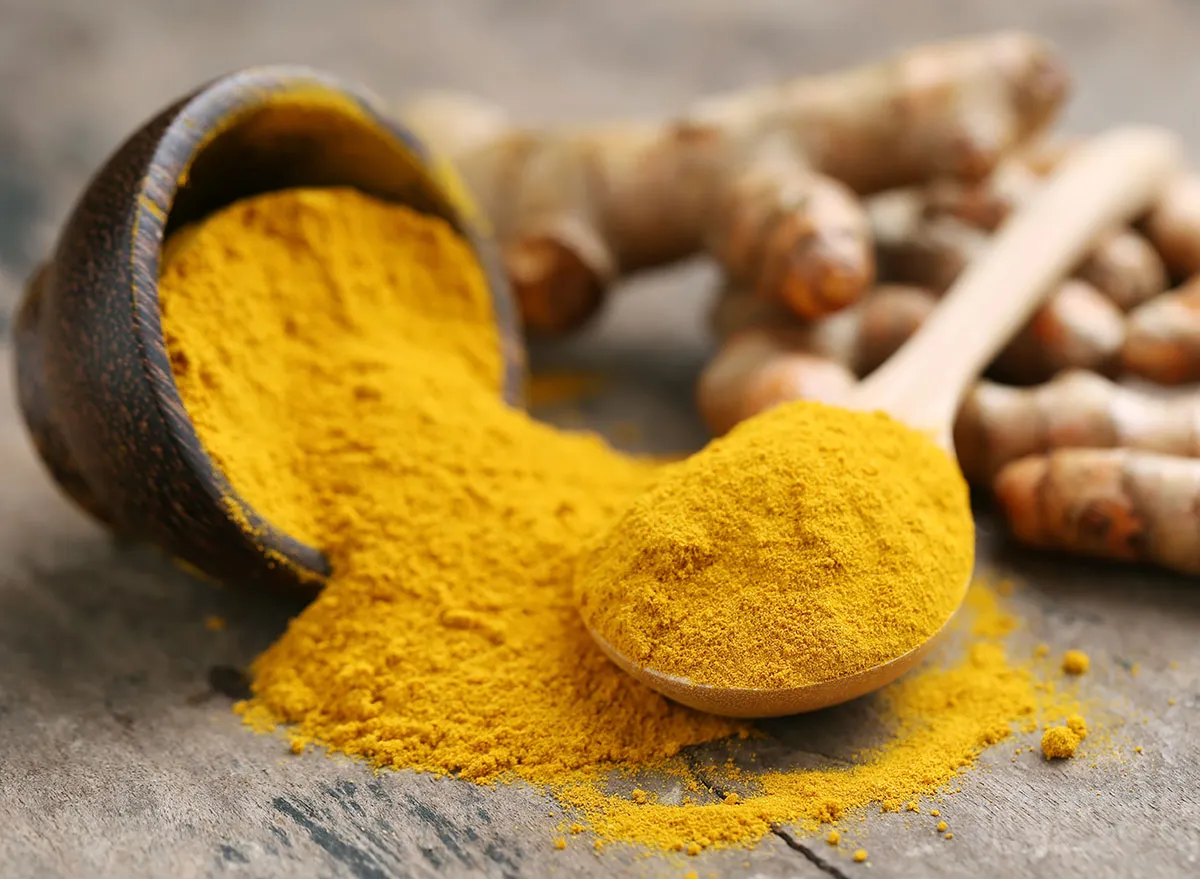
Found in many Indian and Middle Eastern dishes, turmeric is a root that’s considered to be an ancient healer. This is because it has curcumin, which fights against the symptoms of inflammation.
“Ground turmeric is a common spice added to many dishes and often paired with black pepper or piperine, derived from black pepper, to maximize the absorption,” says functional nutritionist Risa Groux, CN. “This powerhouse spice can also be consumed in supplement form and works very effectively to decrease systemic inflammation.”
Celery
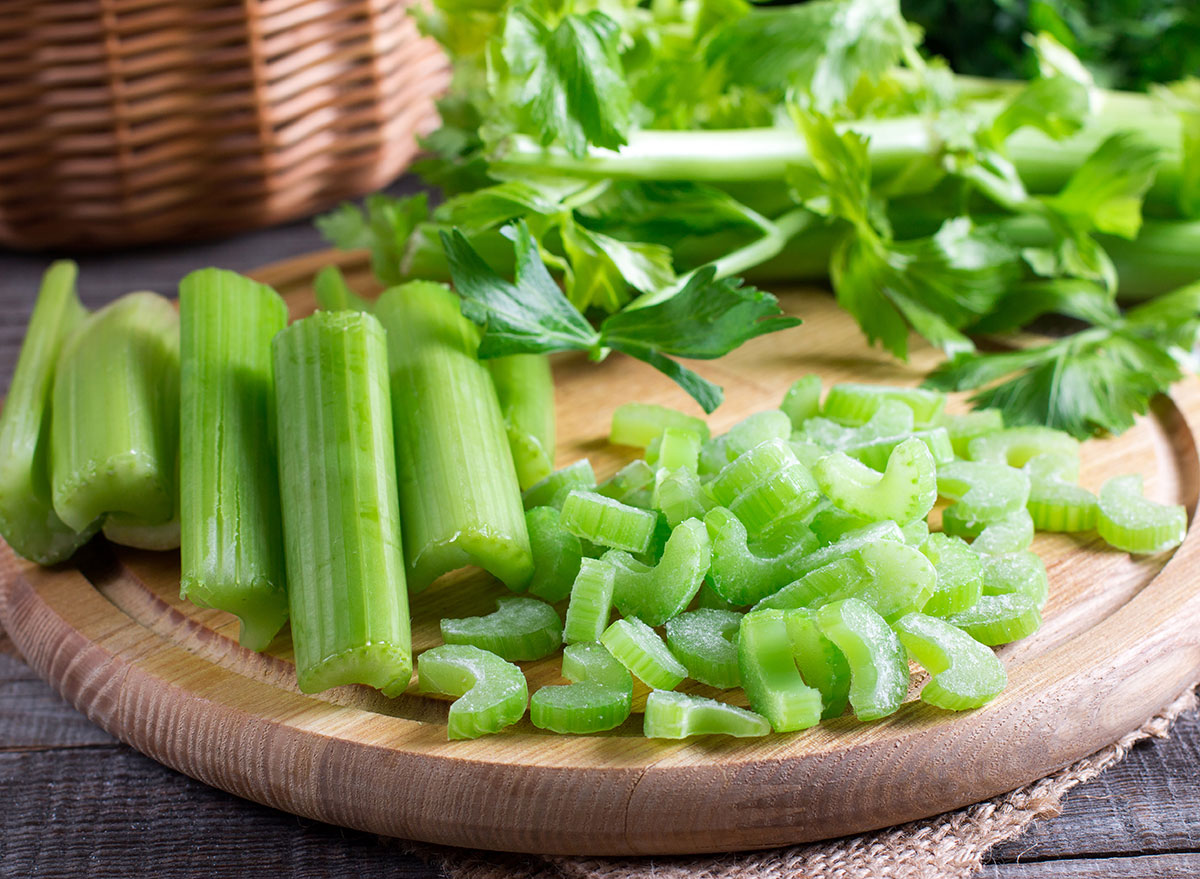
Chewy, hydrating, and refreshing, celery is a go-to snack for many. It’s high in soluble and insoluble fiber and mineral content, all essential to reducing inflammation levels in your body, that also helps neutralize acids and toxins that are driving up the inflammation in the first place, according to Dr. Daryl Gioffre, a celebrity nutritionist and founder of Alkamind.
“Eating celery, and better yet, drinking celery juice, will strengthen your body by fighting inflammation through the presence of polyacetylene,” he says. “This compound not only helps your body eliminate toxins and acidity, but also gives relief for inflammatory health conditions such as rheumatoid arthritis, osteoarthritis, asthma, and bronchitis.”
Greens
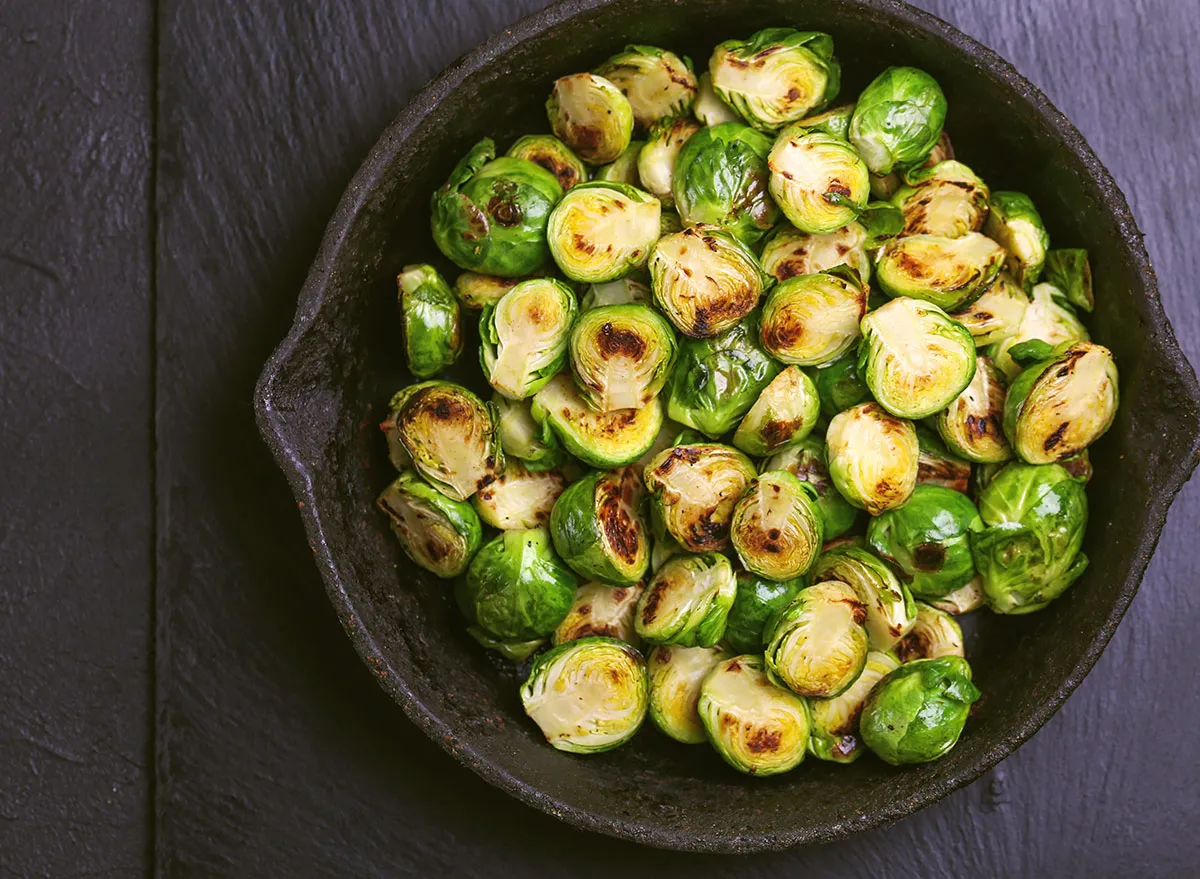
If you’re a fan of the green goodies from Mother Nature, you’re naturally fighting inflammation. These include spinach, Brussels sprouts, kale, broccoli, bok choy, and Swiss chard, all of which contain vitamins A, C, E, and K. As Groux explains, these are known as potent antioxidants that decrease inflammation, and most leafy greens are filled with them.
“It is important to enjoy organic vegetables as they can be highly sprayed with chemicals that can ignite additional inflammation,” she says.
Here are the Major Effects of Eating Leafy Greens, According to Science.
Fatty fish
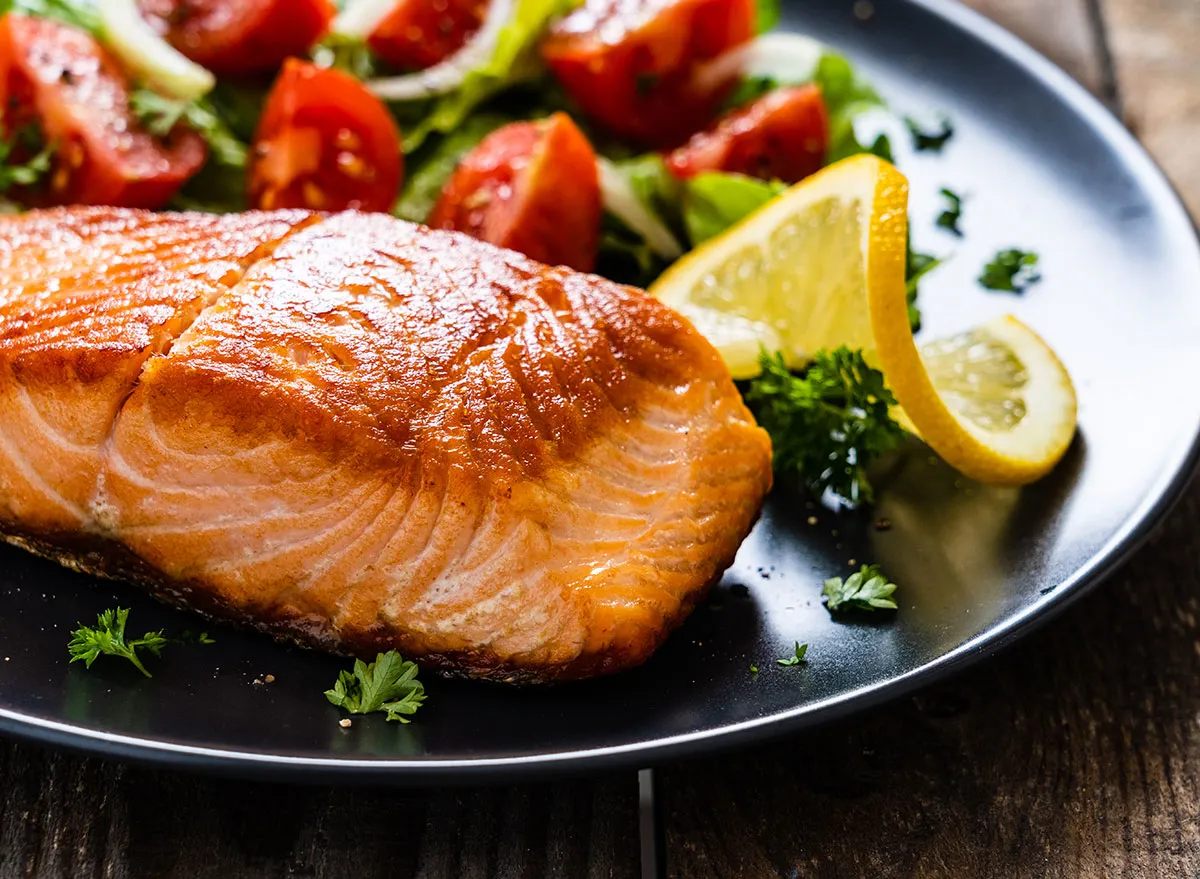
As you plan your meals for the week ahead, add in a few dishes that feature fatty fish, like salmon, sardines, and mackerel. These are all sources of omega 3 fatty acids and have been found to be highly effective in decreasing inflammation, particularly related to cardiovascular disease, Groux says.
“The essential fatty acids DHA and EPA have been shown to decrease cholesterol and triglycerides and improve heart health,” she continues. “In addition, there are benefits to brain health with cognition and performance when people eat or supplement with a quality omega 3 fish oil.”
Turnip
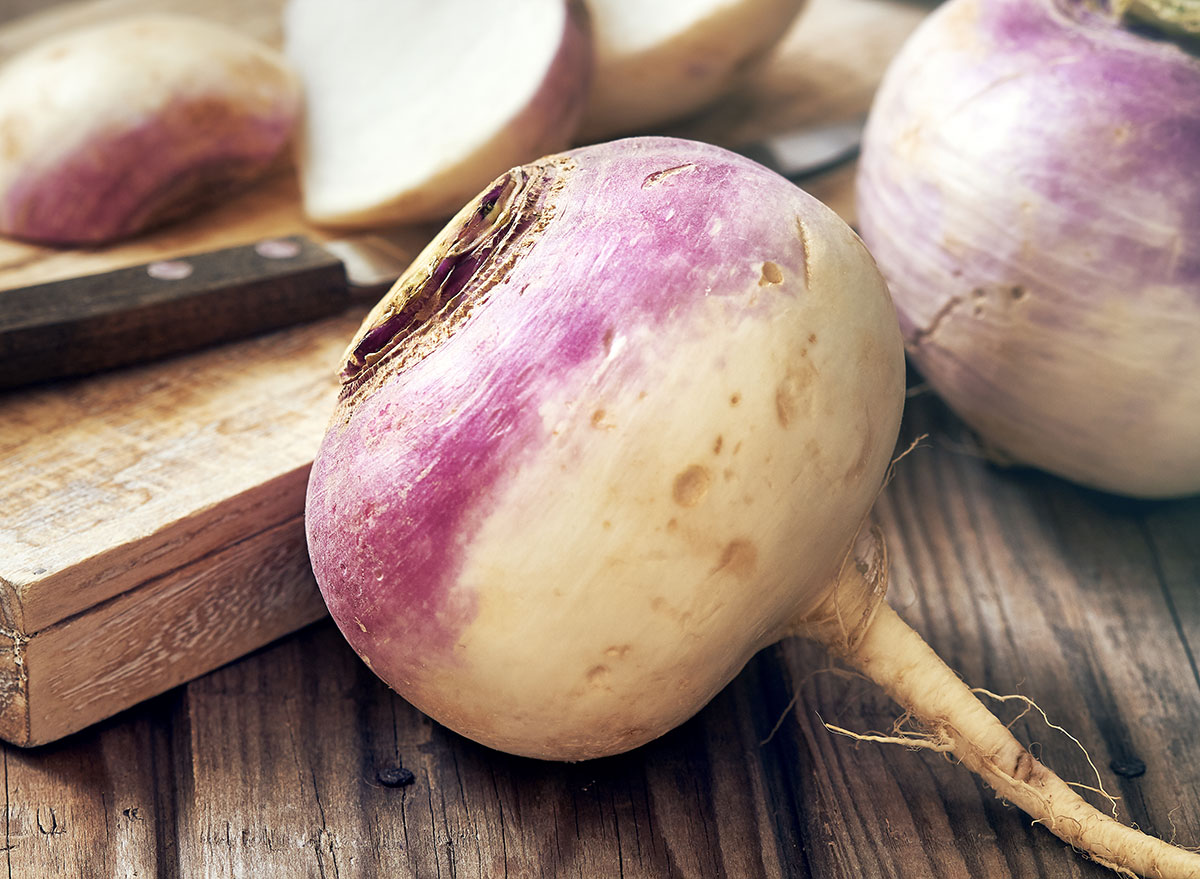
High in flavonoids, volatiles, glucosinolates, and isothiocyanates, turnips have around 30 different phenolic compounds and flavonoids, Mewshaw says. That’s a lot of anti-inflammatory punch for one root vegetable!
“These compounds help to suppress inflammatory prostaglandins and pro-inflammatory cytokines, thereby reducing inflammation,” she says. “Not only do turnips have anti-inflammatory properties, but they are also high in antioxidants that help to protect against cancer, diabetes, liver disease, metabolic syndrome, and atherosclerosis.”
For even more inflammation-fighting tips, read these next: